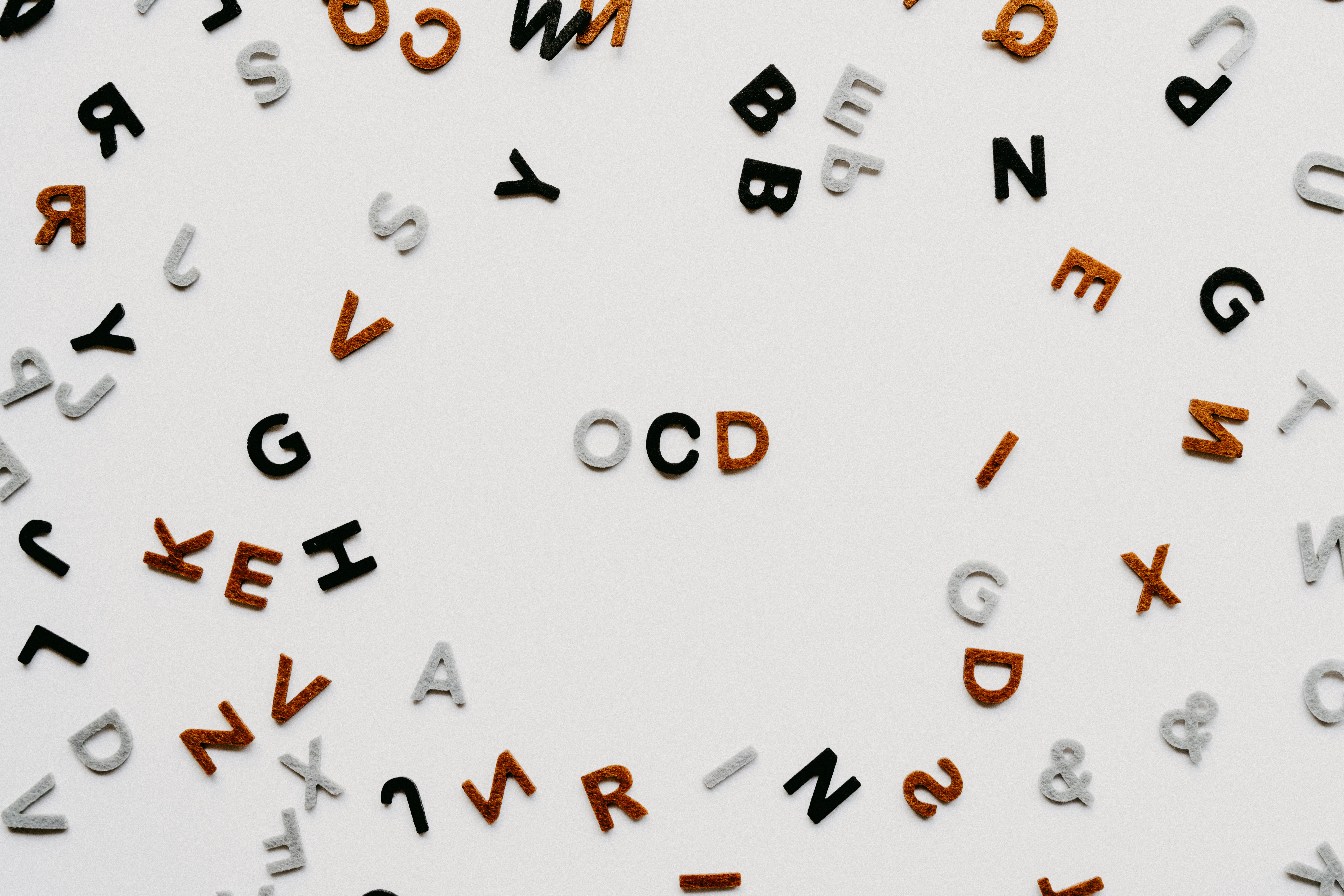Commonly mistaken for being particular or organized, Obsessive-Compulsive Disorder (OCD) is characterized by two core symptoms—obsessions and compulsions.
Obsessions are undesired, intrusive thoughts or images that trigger intensely distressing feelings. Compulsions are behaviors someone engages in to reduce the obsessions and the distress they cause.
Although we all may experience obsessive thoughts or compulsive behaviors at some point, this doesn’t mean we all have “some OCD.” These cycles of obsessions and compulsions can become extreme and disrupt many areas of functioning in someone’s life.
What Exactly are Obsessions and Compulsions?
Obsessions are thoughts, images, or ideas that won’t go away, causing extreme distress. Logically, someone with OCD recognizes that these thoughts don’t make sense. Obsessions typically cause discomfort, anxiety, or fear, if something isn’t done just right. They are time-consuming and can get in the way of regular day to day activities. This is the determining factor in OCD. For example, someone with obsessive thoughts about being clean may be late to work because their morning shower didn’t feel right.
If someone likes to “feel clean,” they would shower in the morning before work but manage to get there on time.
Other common obsessions include repeated doubts, such as believing you may hit someone with your car; a need for order; aggressive or disturbing ideas such as thoughts of murdering your partner or child; and disturbing sexual and religious imagery.
Everyone worries from time to time about their health, a loved one’s safety, etc. However, this doesn’t necessarily indicate symptoms of OCD. Many can move on from a problematic or intrusive thought, but individuals with OCD experience these thoughts more frequently, triggering extreme anxiety.
Common Obsessions in OCD
- Bodily fluids (examples: urine, feces)
- Germs/disease
- Environmental contaminants (examples: asbestos, radiation)
- Home chemicals (examples: detergent, cleaning solutions)
- Losing control of themselves or their abilities to keep themselves and others safe
- Fear of getting hurt
- Fear of being responsible for something terrible happening (examples: fire, burglary)
Perfectionism (exactness, extreme organization)
- Indecisiveness
- Fear of losing things
Unwanted Sexual Thoughts
- Forbidden or perverse sexual thoughts
- Images or impulses about others
- Obsessions about sexual orientation or sexual behavior
Compulsions are the actions that follow an obsessive thought. These are repetitive behaviors that someone would use to neutralize, counteract, even avoid situations that trigger their obsessions. Compulsions can be time-consuming and are a temporary solution.

For instance, If someone is obsessed with contamination, they may repeatedly wash their hands or sanitize doorknobs until it feels right. Other common compulsions include cleaning, counting, checking, requesting or demanding reassurance, and ensuring order and symmetry.
Not all repetitive behaviors or “rituals” are compulsions. For example, morning routines and religious practices require some repetition level but are usually positive and functional. Compulsive behaviors depend on the context. Organizing files for eight hours a day wouldn’t be considered a compulsive behavior if you’re a receptionist, for example.
Someone struggling with compulsive behaviors doesn’t enjoy or want to do them. They feel as if they “have” to get them right. These behaviors are done to try to escape or reduce the anxiety of obsessions.
Common Compulsions in OCD
- Washing and cleaning themselves or things a particular way
- Excessive grooming routines
- Taking preventative measures to decrease contact with germs/dirt
Checking:
- That you did not harm yourself or others
- That you didn’t cause anything terrible to happen
- For potential mistakes
Repeating:
- Routine activities (going up and down the stairs)
- Rereading or rewriting
- Body movements (like blinking a certain amount of times or touching something) Tasks in a specific amount (doing something three times)ing physical health or condition repetitively
Mental Compulsions
- Mental evaluation of events to “protect” themselves and others
- Counting while doing something until reached a safe number
- “Balancing” or “Reversing” (replacing a bad phrase with a good one)

Other Compulsions
- Telling asking or confessing to get reassurance
- Avoiding situations that might trigger your obsessions
There is no defining cause for OCD, but a few factors are believed to play a role.
Genetics: There isn’t one specific gene that causes OCD, but rather a combination or group of genes.
Family history: Someone may have a higher risk of having OCD if another family member also has the disorder.
Stress: Any significant stressor can trigger symptoms of OCD if you are genetically predisposed to having it.
Treatment
Although there isn’t a cure for OCD, treatment can decrease symptoms and gain control over your life. Some of the most effective treatments for OCD include psychotherapy or medications, depending on the severity. Your psychiatrist or physician can collaborate with your therapist to develop the best treatment plan for you.
Cognitive Behavioral Therapy (CBT), or, more specifically, Exposure Response Prevention (ERP), has some of the most substantial evidence for its effectiveness in treating OCD and is typically done by a licensed mental health professional. ERP involves gradual exposure to an anxiety-provoking situation or object and teaches you ways to resist the urge to complete compulsive behaviors or rituals. This can seem too frightening for anyone with OCD, but with effort and practice, you’ll enjoy a better quality of life.
Online Therapy in Florida, Idaho, South Carolina, and Utah
At Calming Transformations Counseling, our therapists understand how difficult it can be to manage anxiety, stress, depression, and relationship issues. We can help through online therapy in Florida, Idaho, South Carolina, or Utah or walk and talk therapy in Hillsborough County, Florida. Book an appointment or contact us today to schedule a session and take the first step toward a healthier, happier life. Remember, your mental health is important—take the time to care for yourself.
